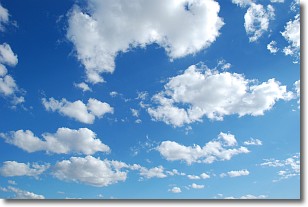Weather Alerts for California
1. Beach Hazards Statement for: Coastal Del Norte; Northern Humboldt Coast; Southwestern Humboldt; Mendocino Coast
2. Beach Hazards Statement for: San Francisco; Coastal North Bay Including Point Reyes National Seashore; San Francisco Peninsula Coast; Southern Monterey Bay and Big Sur Coast
3. Dense Fog Advisory for: Los Banos - Dos Palos; Merced - Madera - Mendota; Planada - Le Grand - Snelling; West Side of Fresno and Kings Counties; Caruthers - San Joaquin - Selma; Fresno-Clovis; Buttonwillow - Lost Hills - I5; Delano-Wasco-Shafter; Hanford - Corcoran - Lemoore; Visalia - Porterville - Reedley; Bakersfield; Southeast San Joaquin Valley
4. High Surf Advisory for: San Luis Obispo County Beaches; Santa Barbara County Central Coast Beaches
5. Wind Advisory for: Northern Sacramento Valley; Central Sacramento Valley; Southern Sacramento Valley
6. Winter Storm Watch for: Del Norte Interior; Northern Humboldt Interior; Southern Humboldt Interior
7. Winter Storm Watch for: Eastern Sierra Slopes of Inyo County
8. Winter Storm Watch for: Greater Lake Tahoe Area; Greater Lake Tahoe Area
9. Winter Storm Watch for: Lassen-Eastern Plumas-Eastern Sierra Counties
10. Winter Storm Watch for: Mariposa-Madera Lower Sierra; Fresno-Tulare Lower Sierra; South End of the Lower Sierra; Yosemite NP outside of the valley; Yosemite Valley; San Joaquin River Canyon; Upper San Joaquin River; Kaiser to Rodgers Ridge; Kings Canyon NP; Grant Grove Area; Sequoia NP; South End of the Upper Sierra; Piute Walker Basin
11. Winter Storm Watch for: Mono
12. Winter Storm Watch for: Northern Trinity; Southern Trinity
13. Winter Storm Watch for: Northwestern Mendocino Interior; Northeastern Mendocino Interior; Northern Lake County; Southern Lake County
14. Winter Storm Watch for: Shasta Lake Area / Northern Shasta County; Burney Basin / Eastern Shasta County; Mountains Southwestern Shasta County to Western Colusa County; Northeast Foothills/Sacramento Valley; Motherlode; Western Plumas County/Lassen Park; West Slope Northern Sierra Nevada
15. Winter Storm Watch for: South Central Siskiyou County; North Central and Southeast Siskiyou County
16. Winter Storm Watch for: Western Siskiyou County
17. Winter Storm Watch for: White Mountains of Inyo County
Want more detail? Get the Complete 7 Day and Night Detailed Forecast!
Current U.S. National Radar--Current
The Current National Weather Radar is shown below with a UTC Time (subtract 5 hours from UTC to get Eastern Time).

National Weather Forecast--Current
The Current National Weather Forecast and National Weather Map are shown below.

National Weather Forecast for Tomorrow
Tomorrow National Weather Forecast and Tomorrow National Weather Map are show below.

North America Water Vapor (Moisture)
This map shows recent moisture content over North America. Bright and colored areas show high moisture (ie, clouds); brown indicates very little moisture present; black indicates no moisture.

Weather Topic: What are Cumulonimbus Clouds?
Home - Education - Cloud Types - Cumulonimbus Clouds
 Next Topic: Cumulus Clouds
Next Topic: Cumulus Clouds
The final form taken by a growing cumulus cloud is the
cumulonimbus cloud, which is very tall and dense.
The tower of a cumulonimbus cloud can soar 23 km into the atmosphere, although
most commonly they stop growing at an altitude of 6 km.
Even small cumulonimbus clouds appear very large in comparison to other cloud types.
They can signal the approach of stormy weather, such as thunderstorms or blizzards.
Next Topic: Cumulus Clouds
Weather Topic: What is Drizzle?
Home - Education - Precipitation - Drizzle
 Next Topic: Evaporation
Next Topic: Evaporation
Drizzle is precipitation in the form of water droplets which are
smaller than raindrops.
Drizzle is characterized by fine, gently falling droplets and typically does not
impact human habitation in a negative way. The exception to this is freezing drizzle,
a condition where drizzle freezes immediately upon reaching earth's surface.
Freezing drizzle is still less dangerous than freezing rain, but can
potentially result in hazardous road conditions.
Next Topic: Evaporation
Current conditions powered by WeatherAPI.com




